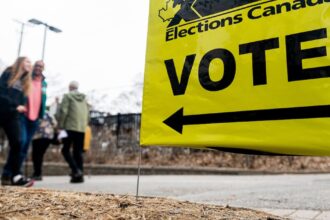In an alarming development across British Columbia, fraudsters have devised a sophisticated new scheme targeting unsuspecting residents with fake ambulance bills demanding payment in Bitcoin. Provincial health authorities issued an urgent warning yesterday after dozens of citizens reported receiving suspicious calls from individuals claiming to represent BC Emergency Health Services.
“The caller had all my personal information and knew I had used an ambulance three months ago,” recounted Vancouver resident Eleanor Thompson, 67. “They sounded so official that I nearly followed their instructions to deposit Bitcoin at a terminal downtown.”
BC Emergency Health Services spokesperson Michael Chen confirmed to CO24 News that the organization has documented over 40 similar complaints in the past week alone. “We want to be absolutely clear: we will never call residents demanding immediate payment, and we certainly don’t accept cryptocurrency as payment for ambulance services,” Chen emphasized.
The scammers appear to be leveraging publicly available information and possibly data from previous breaches to target individuals who have genuinely used ambulance services. Their approach includes creating artificial urgency, threatening collection actions, and directing victims to Bitcoin ATMs.
The legitimate process for ambulance billing in Canada involves mailed statements and multiple payment options through secure government portals. Provincial Health Minister Sarah Williams told CO24 Politics that her department is coordinating with law enforcement to investigate the source of these fraudulent calls.
“These criminals are exploiting people during vulnerable moments and causing significant distress,” Williams stated. “We’re particularly concerned about seniors and those who might not be familiar with how cryptocurrency scams operate.”
Financial crime experts note that this represents an evolution in targeted scamming techniques. “What makes this particularly effective is the combination of legitimate personal health information with cryptocurrency demands,” explained Dr. Raymond Chow, cybersecurity professor at Simon Fraser University. “Once Bitcoin transactions are completed, they’re essentially untraceable and irreversible.”
The BC RCMP has established a dedicated hotline for reporting these scams and advises anyone receiving suspicious calls to hang up immediately and contact both police and BC Emergency Health Services directly.
For residents of other provinces, authorities recommend remaining vigilant as similar scams often spread across jurisdictional boundaries. World News reports indicate that health-related cryptocurrency scams have recently appeared in Australia and the United Kingdom, suggesting this may be part of a global fraud operation.
As digital currencies become increasingly mainstream, how can ordinary citizens protect themselves against sophisticated scams that blend legitimate personal information with fraudulent payment demands?
























